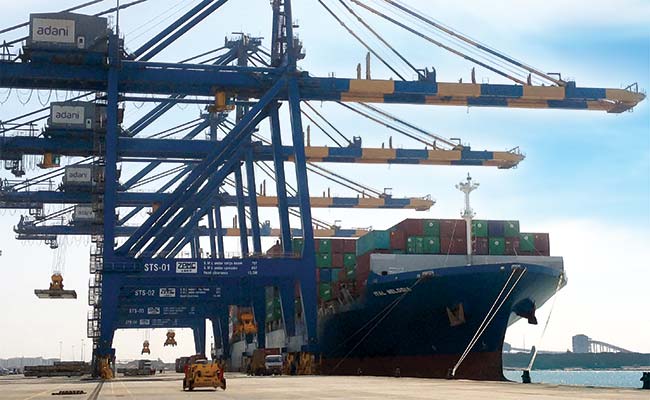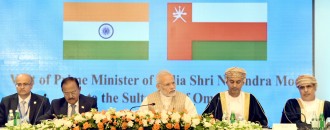
Adani Ports: Another reason to be more ambitious?
Sisir Pradhan | The Dollar Business
 At the forefront of a tectonic shift in the Indian port sector is Adani Ports and Special Economic Zone Ltd. (APSEZL), which not only owns India’s largest port by traffic, but also owns the country’s largest SEZ by notified area – both at Mundra – and several other ports and terminals across the country’s eastern and western coasts.
At the forefront of a tectonic shift in the Indian port sector is Adani Ports and Special Economic Zone Ltd. (APSEZL), which not only owns India’s largest port by traffic, but also owns the country’s largest SEZ by notified area – both at Mundra – and several other ports and terminals across the country’s eastern and western coasts.Adani Group’s flagship company Adani Ports & Special Economic Zone Ltd. (APSEZ) has been handed over a bigger chance to capitalize on foreign investor funds. On June 1, RBI raised the limit on investment by Foreign Institutional Investor (FII) and Qualified Foreign Investor (QFI) groups (the combine of the two investor classes hereon referred to as Registered Foreign Portfolios Investors – RFPIs – as per RBI notification/circular dated March 25, 2014) in the company to 40% of the paid up capital of the company under the Portfolio Investment Scheme (PIS). At present, 18.63% of the company’s shares are held by FIIs, while the Promoters hold an overwhelming three-quarters of the overall shares. The company’s board and shareholders have already approved this prescribed raise in limit of investment in terms of purchase of equity shares and convertible debentures by FIIs. The rules regarding purchase of additional stake in the company by FIIs and RFPIs however remain unchanged – the buying of equity shares and convertible debentures will only be allowed through the primary and secondary capital markets with the transaction being subject to FEMA regulations. At present, while the ceiling for overall investment for FIIs is 24% of the paid up capital of Indian companies (and 10% for NRIs/PIOs), the cap can be increased subject to a resolution passed by the company’s board of directors and a special resolution passed by the shareholders. [In the case of investments by NRIs/PIOs, the ceiling can be raised to a maximum of 24%.] During a time, when quick decision-making, efficiency and professionalism are becoming virtues difficult to find in government-owned ports [truth be told, The Dollar Business team was shocked to see these highly-desirable qualities fill the air over the government-run Kamarajar Port, erstwhile Ennore Port] and private ports are taking off as the real frontrunners in India’s sea trade (read Private Ports – The real torchbearers of India’s trade), such announcements only make one wonder how soon is it before private ports actually handle the bulk of volume at our sea ports. And Adani Ports and SEZ isn’t the first to take this step to welcome greater volumes of capital from foreign shores. In the past five years, while companies like Essar Shipping, Tolani Bulk Carrier, Garware Shipping Corp., and many others have seen the limits of NRI investments in them rise (under PIS) from anywhere between 17 to 24%, there are others that have brought into effect an increase in FII limit to anywhere in excess of 44%, like Arshiya International Limited (49%), Gujarat Pipavav Port Limited (45%), Il&FS Investment Managers Ltd. (74%), and Gateway Distriparks Ltd (100%), etc. What’s the good news for Adani Ports and SEZ? More capital infusion definitely means bigger ambitions for a company that within 12 years of commissioning of its first port at Mundra, became the first port in India to handle 100 million metric tonnes of cargo in FY2013-14. The company has on many occasions claimed that it plans to handle 200 MMTs of cargo by 2020 and create a pan-India presence for itself in the port sector. At present, besides Mundra, the port company operates terminals in Hazira and Dahej (in Gujarat), Mormugao (Goa) and Visakhapatnam (Andhra Pradesh). It is also setting up a bulk cargo handling facility in Tuna Tekra (Kandla Port in Gujarat) and a container terminal at Ennore (in Tamil Nadu) and has also acquired a deep-draft port at Dhamra (Odisha). A look at the company’s growth trajectory so far, makes one believe that this change could well prove another shot in the arm for APSEZ.
June 03, 2015 | 06:30 pm IST.






 to success.
to success.